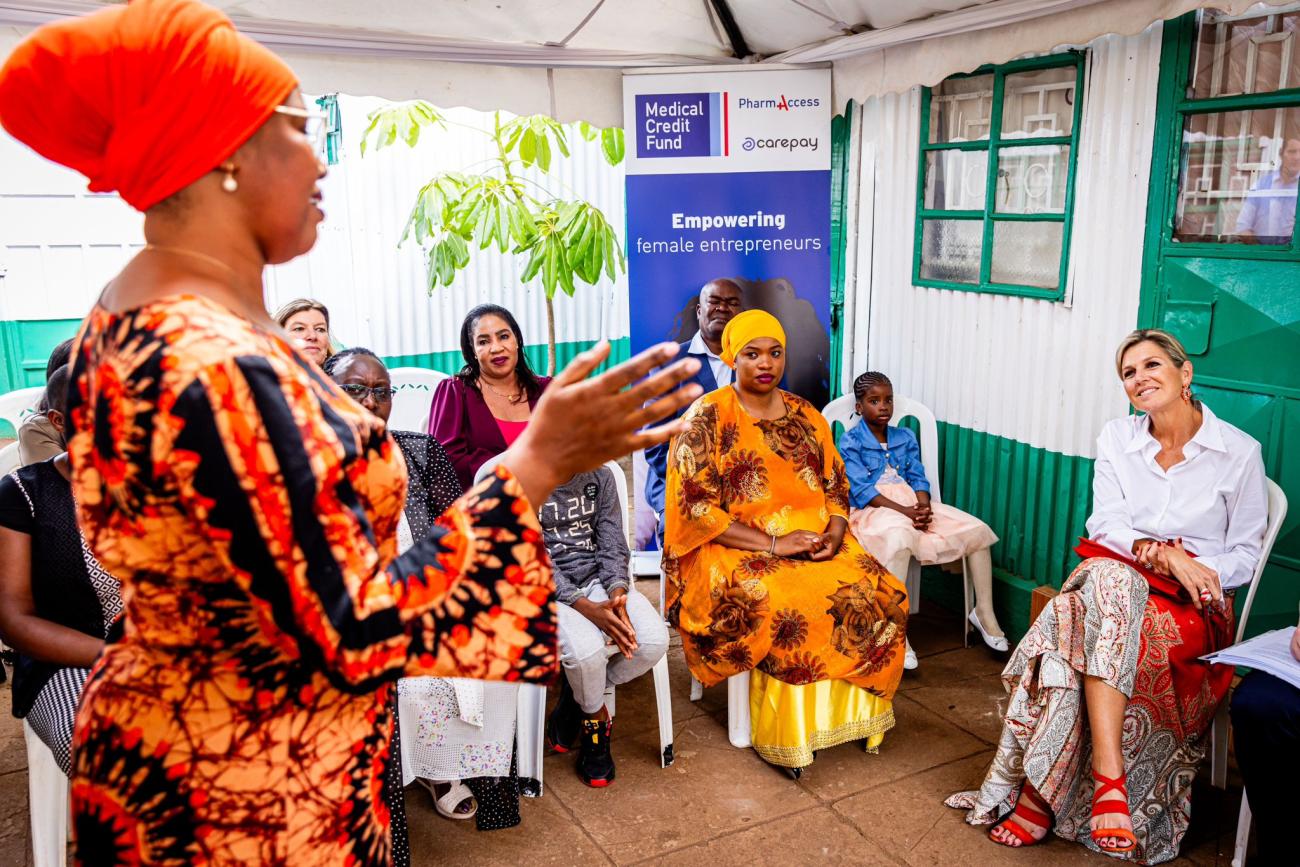
In Ngong, on the outskirts of Nairobi, lies ZamZam Medical Services, a healthcare center dedicated to serving its local community. At the helm is clinic owner Esther Muthoni Karaya, a registered nurse and midwife, who has defied the odds and transformed a family residence into a modern health facility. ZamZam offers an array of services, from maternal health and family planning to physiotherapy, laboratory services, and dental care, seeing around 13,000 patients annually, primarily from lower-income groups.
As a female entrepreneur in Kenya, Esther faced the daunting challenge of securing financing needed to enhance her clinic's services. The stringent collateral requirements of local banks stood as a major roadblock. However, her journey took a transformative turn when ZamZam Medical Services partnered with PharmAccess’s Medical Credit Fund (MCF) in 2012. MCF is the only not-for-profit fund exclusively dedicated to financing health for small and medium-sized enterprises (SMEs) in sub-Saharan Africa.
MCF's innovative product, Cash Advance, launched in 2016 in collaboration with CarePay, introducing vital support for entrepreneurs like Esther. This digital loan product—bundled with technical assistance—offers healthcare providers quick access to loans, with the credit limit based on the facility's mobile revenues. As mobile payments are received, a designated percentage goes toward repaying the loan, allowing for flexibility in line with the actual income earned. The benefit of this approach is that no conventional collateral is required as the same mobile revenues serve as collateral. This is particularly appealing for female entrepreneurs, who are less likely than men to own assets required as collateral in traditional lending models.
ZamZam's credit limit has grown by over 400%, and Esther has used almost 40 digital loans at an average size of $10,500 USD (approx. 1,500,000.00 Kenyan Shilling) to enhance her clinic. These funds helped her manage cash flow fluctuations often caused by delayed insurance payments, expand the facility's maternity unit and admission wards, upgrade the laboratory unit, create a dental unit, purchase essential equipment, and employ more staff members. It has also improved the clinic's quality of care through technical guidance and training provided by SafeCare, transforming it from a level one to a level four healthcare provider (on SafeCare’s scale of five).
The impact of digital financing on the clinic's operations is vivid. It not only helps healthcare providers but directly touches the lives of patients like Farida Rimanto Kimojino, Zipora Akinyi, and Lizzy Muthoni Kihara, all of whom spoke with UNSGSA Queen Máxima about their experiences at the clinic.
These women also reflect the broader community's trust in ZamZam Medical Services, highlighting how it has grown and evolved over time, according to Director of MCF East Africa Kennedy Okongo: “From providing care during unpredictable income situations to offering consistent support, ZamZam's transformation translates into a better quality of life for its patients and their families.”
This collaborative effort between MCF, SafeCare, and ZamZam Medical Services encapsulates the essence of how digital loans, entrepreneurship, and quality standards have combined to enhance healthcare. This is critical in Kenya where SMEs like ZamZam are a key component of the healthcare system—50% of care is provided by the private sector, which also serves low-income populations. By breaking down financial barriers and fostering positive development outcomes, providers play a pivotal role in bridging the gap and making quality healthcare more accessible to all Kenyans.
